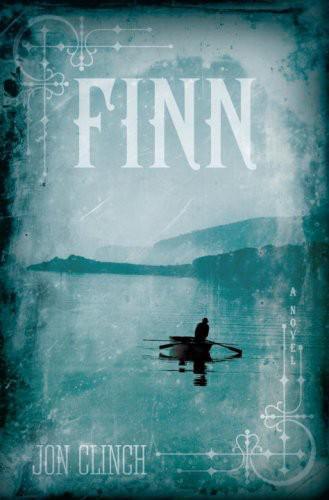
Finn
A Novel
کتاب های مرتبط
- اطلاعات
- نقد و بررسی
- دیدگاه کاربران
نقد و بررسی

Starred review from December 18, 2006
In this darkly luminous debut, Finn, the namesake of the title, is not Twain's illustrious Huck, but Huck's father, "Pap." As the novel opens, an African-American woman's bloated corpse floats downriver from Lasseter, Ill., toward the slave territory of St. Petersburg, Mo. In the Lasseter woods, Finn—a dangerous, bigoted drunk—tells his blind bootlegger friend, Bliss, that he's finally "quit" his on-again, off-again African-American companion Mary, the mother of Finn's second son (also, confusingly, named Huck). Chronically short on money, Finn is shunned by his father (Adams County Judge James Manchester Finn) and by his brother, Will. Finn does odd jobs, traps catfish and claims tutelary rights to Huckleberry's share of Injun Joe's gold. (In this last, he is thwarted by Widow Douglas and Judge Thatcher, high-handed and stifling as ever.) The opaque in medias res narrative then backs up to detail Finn and Mary's life together: his drinking, his stint in the penitentiary following an assault (sentenced by his own father), Mary's rising debts and Finn's attempts at restitution. As the nature of the woman's murder becomes clear, Clinch lyrically renders the Mississippi River's ceaseless flow, while revealing Finn's brutal contradictions, his violence, arrogance and self-reproach. If Clinch's debut falls short of Twain's achievement, it does further Twain's fiction.

Starred review from January 1, 2007
Working from a few tantalizing hints in Mark Twain's text and building on recent trends in Twain scholarship, first-time novelist Clinch fleshes out the shadowy figure of Huckleberry Finn's father, known as Finn. In Clinch's version, Finn is the black sheep of his familya barely literate drunkard who supports his habit by trading catfish for whiskey. His father is a bigoted circuit court judge, and his brother is an unctuous attorney. Finn lives in a rundown cabin on the riverbank with his beautiful black mistress and their pale mulatto child, Huck, but he knows that to reconcile with his father he must sever all ties with the woman. Clinch meticulously follows Twain's lead, concocting plausible backstories for the Widow Douglas and the Thatcher family and reconstructing the circumstances of Finn's death based on the clues that Huck's friend Jim found in the original novel. The Mississippi River is a character in its own right, prominently featured in each chapter. Every fan of Twain's masterpiece will want to read this inspired spin-off, which could become an unofficial companion volume. Highly recommended. [See Prepub Alert, "LJ" 10/1/06.]Edward B. St. John, Loyola Law Sch. Lib., Los Angeles
Copyright 2007 Library Journal, LLC Used with permission.

April 1, 2007
Adult/High School-Embarking from a scene in Mark Twain's "The Adventures of Huckleberry Finn", Clinch has written a debut novel of harrowing intensity. When Jim and Huck find a dead man in a house floating down the Mississippi, the room with the body is filled with mysterious oddities: a wooden leg, two black masks, crude scrawlings over the walls, etc. Huck does not know that the corpse, shot in the back, is his father. Clinch meticulously fills in the backstory of Finn (or "Pap Finn," as Twain usually referred to him). He uses the details of the floating-house scene, and much of Twain's plotting, characters, and themes, to create a story at once intricately entwined with "Huckleberry Finn" and separate from that novel in tone and focus. The author makes no attempt to duplicate Twain's humor and satire. Instead, he sets his sights on humanity's immense capacity for evil. While Huck's innate good heart won the battle against his society-produced conscience, allowing him to help the runaway slave, Finn has neither the heart nor conscience to aid anyone. Clinch's book contains many surprises: Huck is a mulatto; the extremely racist Finn fancies black women; Finn's father (Judge Finn) is the wealthiest and most respected citizen in town and yet, in significant ways, more evil than his son. Many fans of Twain's masterpiece will want to read Clinch's inspired interpretation of Pap, but some might find it too gruesome, and too void of hope. In any event, Clinch offers a wealth of material for AP English and college-level papers."Robert Saunderson, Berkeley Public Library, CA"
Copyright 2007 School Library Journal, LLC Used with permission.

























دیدگاه کاربران